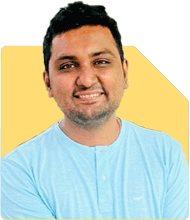R P Yadav | Answer |Ask -Follow
HR, Workspace Expert - Answered on Mar 15, 2024
Over the years, he has been the recipient of numerous awards including the Lifetime Achievement Award from World HR Congress and HR Person Of The Year from Public Relations Council of India.
... more

I am a Post graduate in Marketing Mgmnt with a Civil Engg degree. I am 50 yrs old and I am working in Ports and Marine field currently. Kindy suggest if any further courses like Financial management or Port & Terminal Management would help in my career advancement and also good instiutes for taking up the courses online..
Maritime and Shipping Courses:
Scope: The maritime industry plays a crucial role in international trade and commerce. Almost 90% of global trade is conducted through sea routes, emphasizing the need for professionals in this field.
Courses:
Diploma in Marine Engineering: A 3-year program that covers marine fundamentals and practical aspects.
Diploma in Logistics and Shipping: A 1-year course focusing on logistics and shipping operations.
Diploma in Naval Architecture and Offshore Engineering: A 3-year program related to ship design and offshore structures.
Diploma in Nautical Science: A 1-year course covering navigation and seamanship.
B.Sc. in Ship Building and Repair: A 3-year undergraduate program.
B.Sc. in Maritime Science: A 3-year degree emphasizing maritime operations.
B.Tech/B.E. in Marine Engineering: A 4-year engineering program specific to marine systems.
M.Tech in Marine Engineering: A 2-year master’s program with advanced marine studies.
M.Sc in Shipping Trade and Finance: A 1-year master’s program focusing on shipping business and finance 1.
Management Courses:
MBA in Shipping and Logistics: A 2-year master’s program that combines business management with shipping expertise.
MBA in International Transportation & Logistics Management: A 2-year program covering global logistics and transportation.
MBA in Port and Shipping Management: A 2-year course specifically focused on port operations and management.
Online Institutes and Platforms:
Coursera: Offers various online courses related to marine topics. You can explore their offerings and find courses that align with your interests.
Abu Dhabi Maritime Academy: Known for superior maritime training and career development opportunities.
Considerations:
Interest: Choose a course that aligns with your interests and career goals.
Global vs. Local: Decide whether you want to focus on international opportunities or the Indian maritime sector.
Financial Aspects: Consider the cost of courses and potential return on investment.
Remember that continuous learning and upskilling are essential for career growth. Evaluate your preferences, explore course details, and choose wisely. Best of luck with your career advancement!
You may like to see similar questions and answers below
Mayank Rautela | Answer |Ask -Follow
HR Expert - Answered on Feb 23, 2023
Abhishek Shah | Answer |Ask -Follow
HR Expert - Answered on Jun 23, 2023
Patrick Dsouza |1428 Answers |Ask -Follow
CAT, XAT, CMAT, CET Expert - Answered on May 09, 2025
Mayank Chandel |2569 Answers |Ask -Follow
IIT-JEE, NEET-UG, SAT, CLAT, CA, CS Exam Expert - Answered on Dec 08, 2025
Mayank Chandel |2569 Answers |Ask -Follow
IIT-JEE, NEET-UG, SAT, CLAT, CA, CS Exam Expert - Answered on Dec 08, 2025

Mayank Chandel |2569 Answers |Ask -Follow
IIT-JEE, NEET-UG, SAT, CLAT, CA, CS Exam Expert - Answered on Dec 08, 2025
Mayank Chandel |2569 Answers |Ask -Follow
IIT-JEE, NEET-UG, SAT, CLAT, CA, CS Exam Expert - Answered on Dec 08, 2025
Mayank Chandel |2569 Answers |Ask -Follow
IIT-JEE, NEET-UG, SAT, CLAT, CA, CS Exam Expert - Answered on Dec 08, 2025
Anu Krishna |1746 Answers |Ask -Follow
Relationships Expert, Mind Coach - Answered on Dec 08, 2025
Ramalingam Kalirajan |10874 Answers |Ask -Follow
Mutual Funds, Financial Planning Expert - Answered on Dec 08, 2025
Samraat Jadhav |2499 Answers |Ask -Follow
Stock Market Expert - Answered on Dec 08, 2025
Ramalingam Kalirajan |10874 Answers |Ask -Follow
Mutual Funds, Financial Planning Expert - Answered on Dec 08, 2025
Radheshyam Zanwar |6737 Answers |Ask -Follow
MHT-CET, IIT-JEE, NEET-UG Expert - Answered on Dec 08, 2025


























